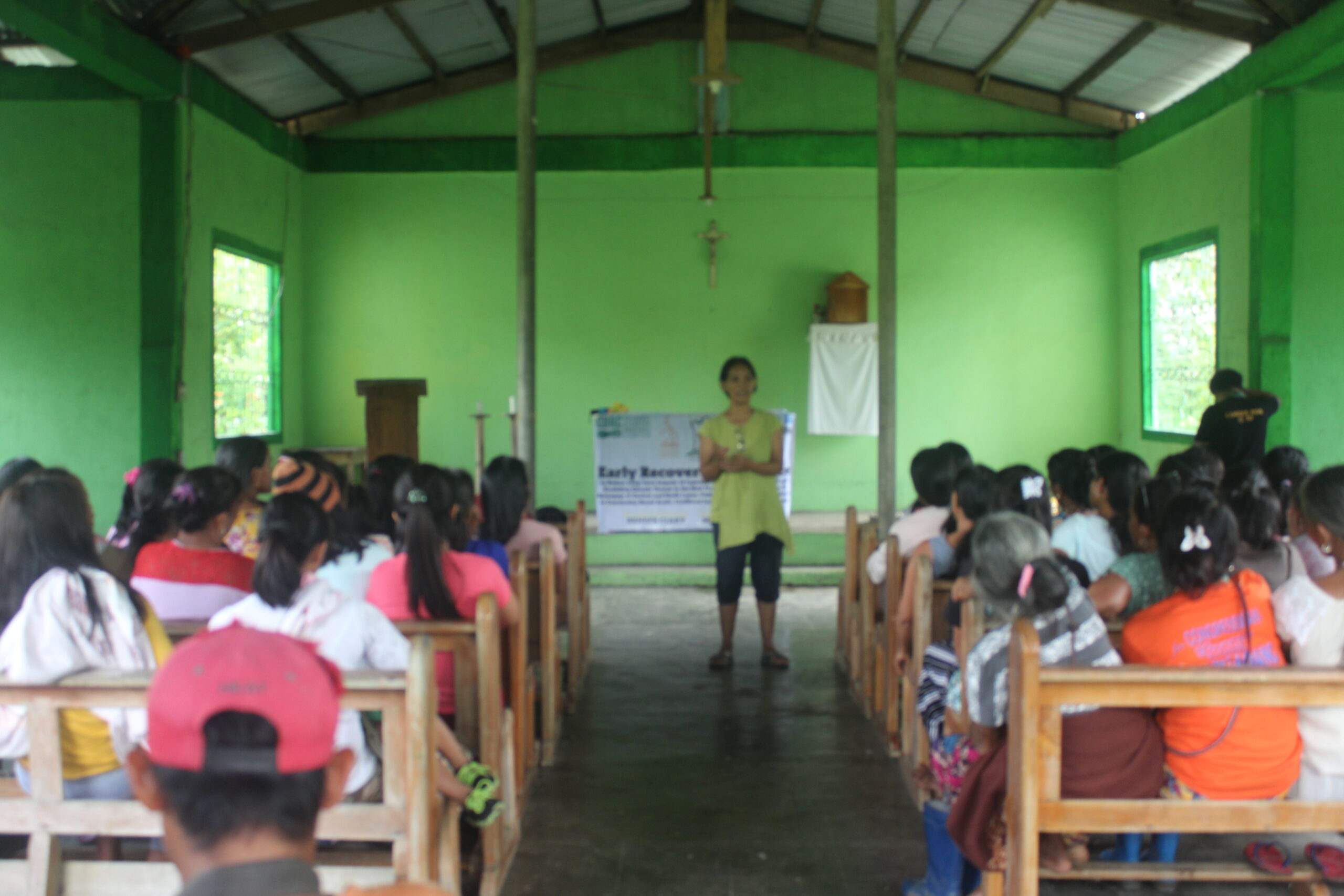Kalinga, Philippines – Farming is the bread and butter for Aling Rosa and her family. As a mother, she works her fingers to the bone to provide the sun and moon for her children. But no matter how hard she works in the field, she always falls short.
For Rosa, farming is crucial for her family’s survival since this is the only way she knows how to raise her children. Every so often, the lack of food on the table stresses Rosa. Not only is she struggling to feed her children, but she is also having a difficult time providing them with their other needs. This is very depressing for a mother like Rosa who wants only the best for her children.
Liwan West lies in the lowland area of Kalinga in the Cordillera region. The residents rely on planting rice and corn both for consumption and sale. They earn little income from low farmgate prices, thus, they turn to borrowing money to buy farm inputs and provide food for their families. Most of the farmers are landless. Worse, the village is also prone to disasters. This plight compels some villagers to seek manual labor jobs in nearby cities to augment their incomes. After all, the village is relatively near commercial areas such as Tuguegarao and Tabuk City.
The past two years had been particularly difficult for small-scale farmers like Rosa as successive typhoons and El Nino-driven droughts battered their village. In 2018, Rosa’s community was adversely affected by Typhoon Ompong (known internationally as Mangkhut) along most of the Cordillera Region. Raging winds and heavy rains destroyed the paddy fields of Rosa’s community, significantly reducing crop yields. The food shortage that ensued added to the already miserable conditions of the villagers. As the fierce storm shattered their village, Rosa knew all too well its impact on their livelihoods. But for Rosa, this event should not put anything on pause. With many mouths to feed, she had to remain strong and resilient to rise again. Typhoon Ompong may be strong, but so is Rosa’s determination. She left her village and found work in the city.
Despite these challenges, for Rosa, every cloud has a silver lining. The CDRC’s effort to reach the hardest hit by disasters gave hope to Rosa and her fellow villagers in Liwan West. It distributed rice seeds and corn fertilizers that provided relief to someone like Rosa whose livelihood was completely ruined by the previous typhoon. Rosa was able to replant her fields without incurring debt.
Also, the program also rolled out other interventions to disaster survivors. With guidance from CDRC and its implementing partner Cordillera Disaster Response and Development Services, Inc. (CorDisRDS), farmers from the village, including Rosa, received capacity training on disaster management. The training aimed to help the villagers increase their capacities and resilience during times of disasters thereby reduce the negative impact of calamities on their livelihood. It also provided Orientation on Sustainable Agriculture, a component of which was on how to make home-made fertilizers. This new know-how helped reduce farm costs and gain extra money for food and other necessities. Moreover, the orientation on sustainable agriculture inspired some corn farmers to reconsider going back to rice farming.
The favorable results of the project encouraged city migrants like Rosa to return to their village and rekindle their passion for farming. Through these small grains of hope, Rosa and the rest of the community members began to rebuild their dreams.
The provisions of seeds and fertilizers were part of CDRC’s program “Restoring the Livelihoods of those most affected by Tropical Storms in Luzon” in 21 Barangays of Central and North Luzon, Philippines through improved access to community-based assets, livelihood support, and CBDRRM knowledge. This program aimed to reduce the adverse effects of SuperTyphoon Ompong (Mangkhut) on the most vulnerable communities. This program was made possible through the support of Diakonie Katastrophenhilfe.

